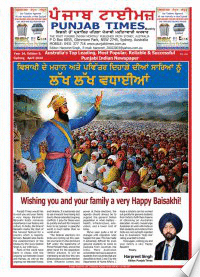‘Dum Laga Ke Haisha’ filmmaker Sharat Katariya: I’m a very chaotic director
Sharat Katariya: it’s great to see the audiences smitten by the world shown in the movie.
So, the movie is getting a very good response.
(Interrupts) First things first, I too am not able to crack the code why people are watching the film and what has worked. Honestly speaking, my team and I made the film just with the intention of making something that works for us. I had thought if it works for us, we can hope it will work for others too.
It’s overwhelming to see the film getting a good response. We (Bhumi, Ayushmann and Sharat) have been doing the rounds of theatres to see how the audiences are reacting. And it’s great to see the audiences smitten by the world shown in the movie. They are laughing, crying, clapping. It has happened because people are connecting with our honest approach. However, I don’t know if it is the 90s nostalgia, the plot, Sandhya’s strong character, Prem’s underdog character, or something else that has worked.
What were your thoughts before the film’s release?
When the film released on Friday (February 27) with a very low-key publicity, one thought was — ‘are we apologetic about the film?’ But it was producer Maneesh Sharma who gave me a lot of confidence by saying that the film is its own publicity tool and that it will speak for itself. That we don’t need to go ballistic with marketing if the content is good. He said, we don’t need to push our content down the audiences’ throat, they will go to the theatres without being fooled or cheated. And we proved that. Friday numbers were decent (Rs 1.50 crore), Saturday was almost double (Rs 2.25 crore) and Sunday (Rs 2.75) was even better. Monday onward, it has been consistent and now it is also releasing in many single screens.
In many interviews, you have mentioned it was the pic- ture of a wife-carrying championship that led to the film. But the film talks about many things besides that. How did the story evolve? Also, the major part of the film remains confined in one house in Haridwar, was it planned like that?
We were lucky enough that while writing we could take it beyond the wife-carrying championship and make a film with a strong voice. The only thought was to make it entertaining and engaging. And yes, 60 per cent of the film has been shot in one house. It doesn’t need the paraphernalia of great exotic locations and item numbers for a film to be successful.
From audio and video cassettes to the RSS shakha, you have brought back some of the popular elements from the 90s. Also, the film, besides giving out a strong mes- sage on women empowerment, has a lot of underlined messages that of a lonely woman in bua (Sheeba Chaddha), bringing an earning bahu etc. What was the idea?
Initially, the film was set in the contemporary times and not the 90s.
It was Maneesh Sharma’s (producer) idea to do that. When he proposed the idea, I asked him if I could write a draft and then take a call. I wrote and realised it was a master stroke. It made nostalgia an important character in the film. As far as the shakha is concerned, I grew up in a shakha myself. I thought it would be very funny to have a male locker room kind of thing where conversations pertaining to sex, how to lead your life as a man, etc happen. It adds humour to the story too. Besides, the whole film, in very subtle ways, is talking about relationships — how we deal with them and how we come to terms with what hap- pens when a relationship goes awry. It is bua’s own complexes of not having a family because of which she pushes the lead actors to give their relation- ship another try. Then, there’s the father’s character who wants to bring home a bahu who is earning, with- out giving importance to looks. While his financial constraints force him to be liberal, to have such a thought, back in the 90s, was progressive.
How would you define your journey from your first film, 10 ml Love (2012) to now DLKH? Now, you have co-written Kanu Behl’s Titli and the dialogues for Maneesh Sharma’s Fan. How has it helped you?
I feel blessed to have progressed from 10 ml Love to DLKH. My wife Anusha and I had produced 10 ml Love on our own and we had the best of intentions even then, but because of recession, things didn’t work in our favour. This time, with Maneesh Sharma as the producer, things fell in place. I am a very chaotic director. I am all over the place. I don’t respect time and do things my way. But Maneesh kept me focussed. As a true friend, he allowed me the space for organic filmmaking. Both Kanu and Maneesh are very clear-headed and focussed. Working with them has been a great experience. They are so articulate that while writing for them, you don’t digress or waver from the core of the film. It helps you improve as a writer. For the time being, I am not even thinking of anything besides enjoying the glory that DLKH is getting. I will let it settle down before starting on another project.
priyanka.bhadani@expressindia.com
Source:: Indian Express


